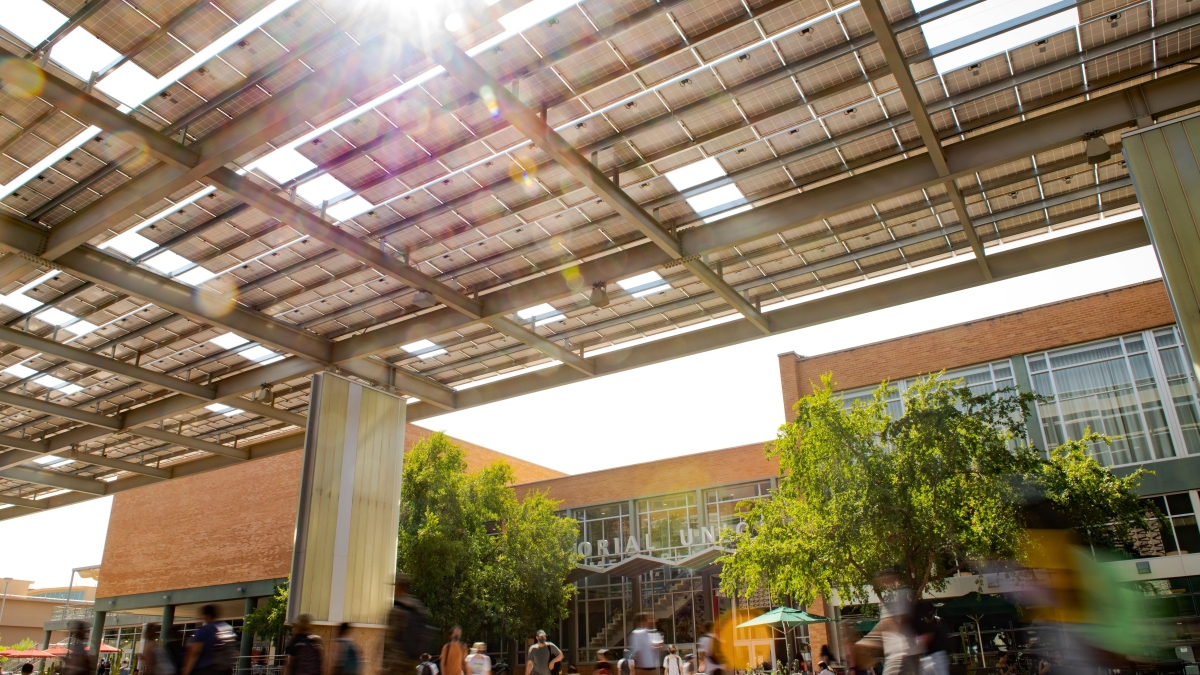Spring course to explore free speech on campus, in society

ASU's Tempe campus.
In spring 2022, Arizona State University undergraduates will have an opportunity to study the First Amendment and campus free speech controversies with one of the nation’s foremost authorities on free speech.
“Freedom of Speech on Campus and in American Society” (CEL 394, class 32773), taught by ASU Law Professor James Weinstein, the Dan Cracchiolo Chair in Constitutional Law at the Sandra Day O'Connor College of Law at ASU, is part of the list of courses offered by the School of Civic and Economic Thought and Leadership. We talked to Weinstein about freedom of speech and the controversies vis-a-vis its application on college campuses.
Question: What subject matter will this course cover?
Answer: The course will be divided into three parts. The goal of the first part will be for students to gain a basic understanding of contemporary American free speech doctrine. We will read and discuss excerpts of the major Supreme Court free speech cases, especially those providing rigorous First Amendment protection to speech on matters of public concern in public forums, such as in a city park or street corners, and in the media.
The second part of the course will consider the history of the American university, its present-day mission and the concept of academic freedom.
The third and final part of the course will focus on campus speech. We will consider such issues as barring controversial speakers from campus; the line between appropriate and inappropriate means of protest against such speakers; sanctions on faculty and students for speech in the classroom or in open spaces on campus that some students claim interfere with their equal educational opportunities; and sanctions on faculty and students for off-campus speech, especially on the internet, allegedly impairing on-campus equal educational opportunities. In doing so, we will focus on the extent to which the general free speech principles we studied in the first part of the course should apply at public colleges and universities via the First Amendment, and at private institutions of higher learning through adoption of such measures as the Chicago Principles.
Q: When it comes to college campuses, and particularly during these times of social media and social justice protesting, for example, how is freedom of speech clashing with society’s pressure for justice?
A: This question raises a very important issue relating to the purpose of the contemporary American university. The traditional concept of the university’s purpose is the creation and transmission of knowledge. Recently, however, the traditional conception has been challenged by those who want to add the promotion of social justice as a primary purpose of the university. Which view of the purpose of the university one adopts will have a significant bearing on the propriety of suppressing speech that alienates members of minority groups, as well as the creating of safe spaces on campus and requirements of trigger warnings. For this reason, in this course, we will spend considerable time discussing and debating what the primary purpose of a university should be.
Q: Which texts will students read?
A: The primary textbook will be "First Things First: A Modern Coursebook on Free Speech Fundamentals." An online version of this text is available to students for free.
More Law, journalism and politics

Native Vote works to ensure the right to vote for Arizona's Native Americans
The Navajo Nation is in a remote area of northeastern Arizona, far away from the hustle of urban life. The 27,400-acre…

New report documents Latinos’ critical roles in AI
According to a new report that traces the important role Latinos are playing in the growth of artificial intelligence technology…

ASU's Carnegie-Knight News21 project examines the state of American democracy
In the latest project of Carnegie-Knight News21, a national reporting initiative and fellowship headquartered at Arizona State…